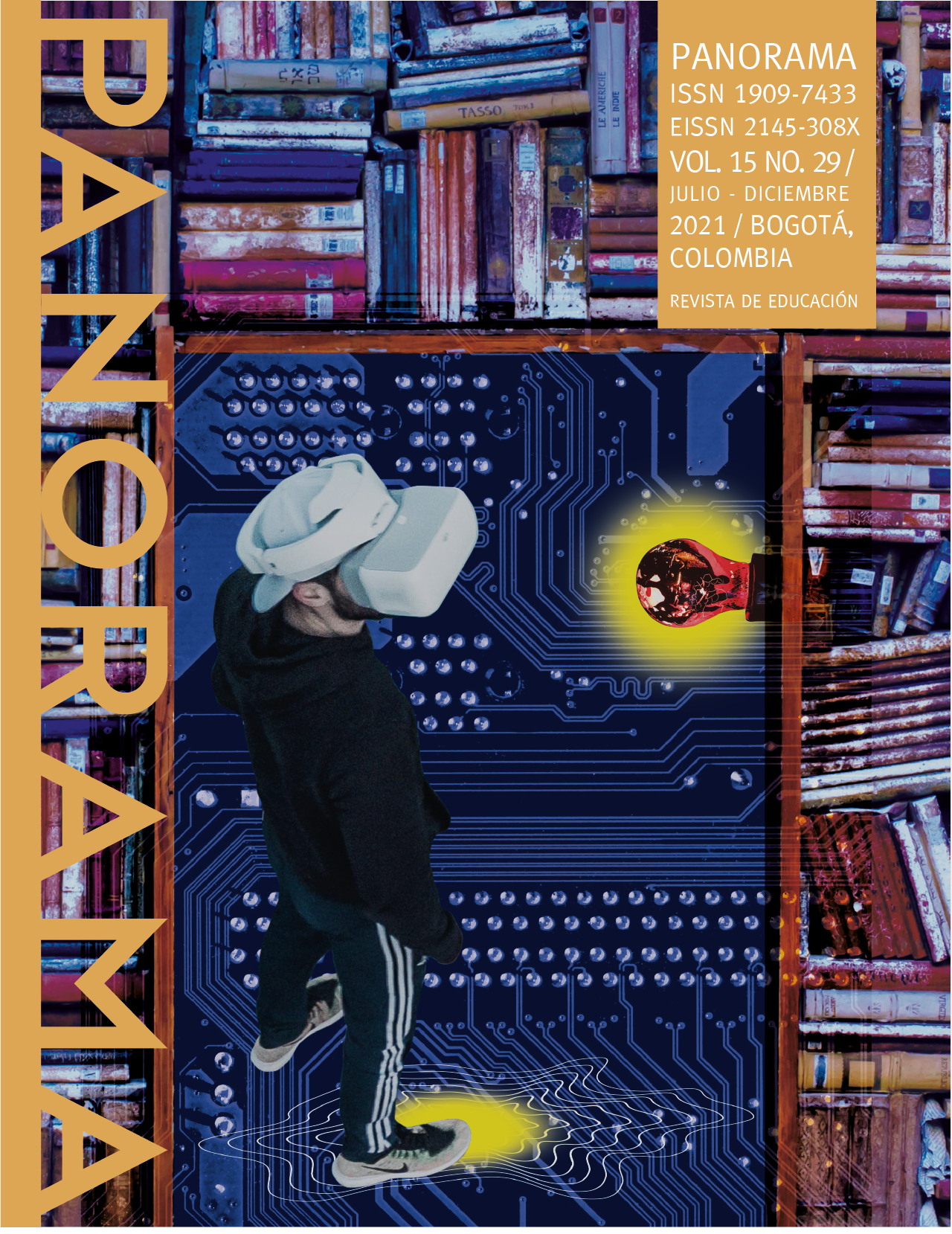Abstract
The following article aims to address and present the relevance of the theoretical framework in scientific initiation, its role in the research process and the modes of its construction. Various approaches and tools for the construction of a theoretical framework defined by both the literature and the author's experience are brought together in the text, using as an example the study of historical institutional development in the field of political science. A general conclusion that results from this work is that the theoretical framework, as a conceptual body, establishes the support for the objectives and hypotheses proposed by the research, becoming a kind of epistemological umbrella that defines the author's position on the campus of the debate. In more specific terms, precisely identifying the level of abstraction of the selected theory will shed light on the scope and methodological framework of the social science study.
References
Ander-Egg, E. (2011). Aprender a investigar. Nociones básicas para la investigación social. Argentina: Editorial Brujas.
Arias, F. (2006). El proyecto de investigación. Introducción a la metodología científica. Caracas: Editorial Episteme.
Ballesteros, B. (coord.) (2014). Taller de investigación cualitativa. Madrid: Universidad Nacional de Educación a Distancia UNED.
Cortés, M. I. C., Norman-Acevedo, E., & Rodríguez, D. A. O. (2019). Characterization of formative research projects in virtual programs by the Politécnico Grancolombiano. Revista Electronica de Investigacion Educativa, 21(1), 1–11. https://doi.org/10.24320/REDIE.2019.21.E19.1992
Daza-Orozco, CE. (Ed.). (2019) Iniciación cientifíca: conceptualización, metodologías y buenas prácticas. Bogotá, Colombia. Institución Universitaria Politécnico Grancolombiano
Daza-Orozco, CE; Cera-Ochoa, R. A. (2018). Escritura con estilo: Guía práctica para publicar científicamente (1st ed.). Retrieved from http://palma.sanmateo.edu.co/index.php/catalogo/series/41-escritura-con-estilo-guia-practica-para-publicar-cientificamente
Daza-Orozco, C. (2015). La Investigación como proyecto de Vida: Un acercamiento al quehacer de los Semilleros de Investigación. https://doi.org/10.13140/RG.2.1.2631.1761
De Cid, A., Méndez, R., & Sandoval, F. (2007). Investigación. Fundamentos y metodología. México: Pearson Educación.
Flick, U. (2015). El diseño de la investigación cualitativa. Madrid: Ediciones Morata.
Fuentes-Doria, D., Toscano-Hernández, A., Malvácea, E., Díaz, J., & Díaz, L. (2020). Metodología de la investigación: conceptos, herramientas y ejercicios prácticos en las ciencias administrativas y contables. Medellín: Universidad Pontificia Bolivariana Ediciones.
Gómez, A. (2014). Filosofía y metodología de las Ciencias Sociales. Madrid: Alianza Editorial.
Hernández-Sampieri, R., & Mendoza, C. (2018). Metodología de la investigación. Las rutas cuantitativa, cualitativa y mixta. México: McGraw-Hill Interamericana Editores.
Lazarsfeld, P., Berelson, B., & McPhee, W. (1954). Voting. A study of opinion formation in a presidential campaign. Chicago: The University of Chicago Press.
Mahoney, J., & Schensul, D. (2006). “Historical Context and Path Dependence”. Cap. 24 (pp. 454-471), En Goodin, R. y Tilly, C. (ed.). The Oxford Handbook of Contextual Political Analysis. Londres: Oxford University Press.
Novak, J., & Gowin, D. (2002). Aprendiendo a aprender. Barcelona: Ediciones Martínez Roca.
Norman-Acevedo, E., Daza-Orozco , C. E., & Caro-Gómez, C. L. . (2021). HOJA DE RUTA PARA LA ELABORACIÓN DE RESULTADOS DE APRENDIZAJE PARA LA FORMACIÓN INVESTIGATIVA. Panorama, 15(28), 1–12. https://doi.org/10.15765/pnrm.v15i28.1813
Norman-Acevedo, E., & Daza-Orozco, C. E. (2020). LA CONSTRUCCIÓN DE CONTENIDOS PARA LA ENSEÑANZA VIRTUAL: RETOS COYUNTURALES EN EL CONFINAMIENTO. Panorama, 14(27), 5–13. https://doi.org/10.15765/pnrm.v14i27.1517
Ñaupas, H., Mejía, E., Novoa, E., & Villagómez, A. (2014) Metodología de la investigación. Cuantitativa-cualitativa y redacción de tesis. Bogotá: Ediciones de la U.
Ontoria, A., Ballesteros, A., Cuevas, M., Girardo, L., Martín, I., Molina, A., Rodríguez, A., & Vélez, U. (2012). Mapas conceptuales. Una técnica para aprender. Madrid: Narcea Ediciones S.A.
Pimienta, J., & de la Orden, A. (2017). Metodología de la investigación. México: Pearson.
Popper, K. (1962). La lógica de la investigación científica. Madrid: Editorial Tecnos.
Sáez, A., & Enrique, H. (2008). Cómo investigar y escribir en Ciencias Sociales. Ciudad de México: Universidad Autónoma Metropolitana, colección docencia y metodología.
Sampieri-Hernández, R., Fernández-Collado, C., & Baptista-Lucio, P. (2006). Metodología de la investigación. México: McGraw-Hill.
Sautu, R., Boniolo, P., Dalle, P., & Elbert, R. (2005) Manual de metodología. Construcción del marco teórico, formulación de los objetivos y elección de la metodología. Buenos Aires: CLACSO Libros.
Trigo, L. (2015). El debate sobre la noción de Path Dependence y su conciliación en un modelo dinámico de análisis institucional. Revista Chilena de Derecho y Ciencia Política, 6(1), 81-107.
Trigo, L. (2016). Una revisión de los aportes del institucionalismo histórico a la ciencia política. Revista Colombiana de Ciencias Sociales, 7(1).
Trigo-Soto, L. (2019) “Reflexiones sobre la verdad y realidad en el conocimiento científico: enfoques desde las concepciones galileanas, de la intervención y de la lógica lingüística”. En Iniciación científica: conceptualización, metodologías y buenas prácticas. Bogotá: Editorial Politécnico Grancolombiano.

This work is licensed under a Creative Commons Attribution-NonCommercial-NoDerivatives 4.0 International License.





